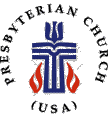
 |
The Nicene Creed (ca AD
325-381)
|
 |
The Apostles' CreedDeveloped between the second and ninth centuries as a baptismal creed for new Christians this is the most popular creed used in worship by Western Christians. Its central doctrines are those of the Trinity and God the Creator. |
 |
The Scots Confession (1560) - John Knox
|
 |
The
Heidelberg Catechism (1563) -- full text in several parts
|
 |
The
Second Helvetic Confession
(1566)
|
 |
The Westminster Confession of Faith
(1646) Frames Version | Whole Written by the Westminster Assembly at the call of Parliament together with the following two catechisms and heavily influenced by Reynolds. It is written in the context of the English Civil War and as a response to high church Anglicanism. The central doctrines of this and the following two catechisms are the sovereignty of God and the authority and proper interpretation of Scripture. |

|
The Shorter Catechism
|
 |
The Theological Declaration of Barmen (1934)
|
 |
The Confession of 1967 - United Presbyterian Church
|
 |
|
|
![]() Searchable
-- This is a special web application which lets you search for a word or phrase.
The places in the document where those phrases can be found are then marked in
an "outline", and you can expand the outline to "drill down"
to the location of each occurrence. Other General Assembly documents beyond the
Confessions and Book of Order are available here as well. This area is quite
busy, and may not always be available.
Searchable
-- This is a special web application which lets you search for a word or phrase.
The places in the document where those phrases can be found are then marked in
an "outline", and you can expand the outline to "drill down"
to the location of each occurrence. Other General Assembly documents beyond the
Confessions and Book of Order are available here as well. This area is quite
busy, and may not always be available.
 |
The 210th General Assembly (1998) of the Presbyterian Church (U.S.A.)
approved catechisms for use in the church. These have not however been added
to the Book of Confessions. Three versions of these catechisms are available: Two of these catechisms are presented here with Scripture references. The references were not part of the text approved by the Assembly, but were prepared by the study committee for use with the catechisms. |
|
The 219th General Assemble (2010) approved the Confession of Belhar and recommended it to the constituent presbyteries for their vote for future inclusion in the Book of Confessions. If approved by a two-thirds majority of presbyteries and by the 220th General Assembly (2012), the Constitution will be amended. |
 For
a detailed discussion see Jack Rogers' - Presbyterian
Creeds: a guide to the book of confessions; The Westminster Press, Philadelphia,
PA; 1985; and its supplement, Presbyterian Creeds: supplement on a brief statement of
faith; ibid. 1991.
For
a detailed discussion see Jack Rogers' - Presbyterian
Creeds: a guide to the book of confessions; The Westminster Press, Philadelphia,
PA; 1985; and its supplement, Presbyterian Creeds: supplement on a brief statement of
faith; ibid. 1991.
Presented in association with Amazon.Com.
Other Christian Creeds and Confessions
Feel free to link to this site from your church or seminary page, etc. Comments, objections and suggestions are appreciated. Cross referencing will be an ongoing project so stop back every so often. I am responsible for only some of the above links hence some may change over time. Please let me know if any of them do change or if you find some better links to replace these. Thank you. Sean Cooper, PC(USA) [email protected]